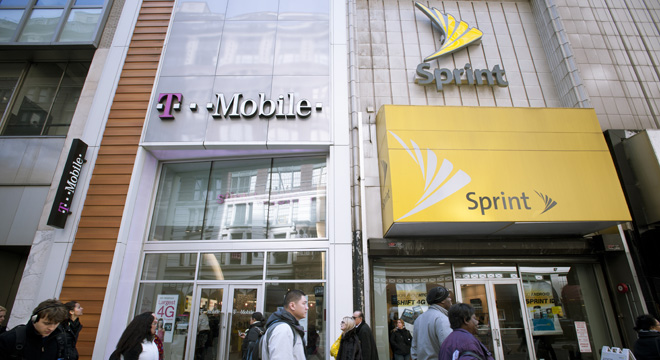That’s the $39 billion question: Can AT&T salvage its proposed merger with T-Mobile by offering to sell a not-insignificant share of the latter company’s assets, say, 40 percent?
At this point, any reworked deal to combine the companies is going to be butting up against fearsome odds: The FCC on Tuesday released a 100-plus page report outlining in extensive detail the findings of its review of the transaction, and they aren’t pretty, especially not for AT&T.
The FCC accuses AT&T of overstating the proposed network efficiencies that would be derived from the merger and understating the proposed harms to competition and consumers, and as such, could not find the merger in the public interest.
And although the FCC granted AT&T’s request to pull its merger application from review, averting what would’ve been a contentious hearing involving witnesses vehemently against the merger, AT&T’s biggest foe is still barreling down upon it: The Justice Department, which launched an antitrust lawsuit against the company in September, is still in the throws of preparing for the trial opening on February 13, 2012.
AT&T is also being sued by seven state attorneys general and competitors Sprint and C-Spire Wireless. Finally, the merger is also being investigated by the California Public Utilities Commission, which could throw a monkey-wrench into the proceedings even if the merger is approved on the federal level by blocking AT&T from acquiring T-Mobile’s physical assets and customers in the Golden State, as Politico reported.
Sufficed to say, any retooled deal involving a sale of assets probably needs to be radical in order to convince regulators that the merger is acceptable. AT&T says the merger is necessary to acquire enough wireless spectrum licenses from T-Mobile — that is, T-Mobile’s FCC-granted permission to use bands of the radio spectrum for mobile data — to fill out its next generation LTE network.
Little surprise then, that AT&T is reportedly in backdoor talks with Leap Wireless to divest an untold amount of T-Mobile’s assets, including customer accounts and wireless spectrum licenses, the New York Times’ DealBook reported on Monday. The “audacious” deal would reportedly involve enough asset divestiture to instantly vault Leap Wireless, currently a second-tier carrier, into the nation’s fourth-largest carrier.
AT&T and Leap Wireless declined to comment on the report, but the overall divestiture plan has reportedly been in the works for a while now, with Bloomberg reporting on November 25 that AT&T was considering divesting up to 40 percent of T-Mobile’s assets to either Leap or Metro PCS.
At that time, an analyst told the news outlet that any divestiture at this stage would be too little, too late, to change regulators mind.
Spencer Waller, a professor of antitrust law at Loyola University in Chicago, agrees that AT&T has basically no hope when it comes to coming up with a plan to sell enough T-Mobile assets to get the deal through the door.
“I have trouble envisioning an asset sale that would both satisfy the Justice Department on antitrust grounds and still make strategic sense for ATT to proceed with the deal,” Waller wrote to TPM in an email, “The combined market shares (and entry barriers) are so high in the vast majority of metropolitan areas that there is no easy way to sell assets to make the competition concerns for consumers go away.”
Indeed, the FCC’s report specifically sites problem in its report, writing on pages 9 and 10 that “this transaction raises competitive concerns because it would increase concentration substantially in many markets that would be highly concentrated post-transaction…For instance, an unprecedented 99 of the 100 largest local wireless markets…would exceed the level at which the Commission becomes concerned about anticompetitive effects.”
Waller added: “Also asset sales would be unlikely to satisfy the Justice Department’s concerns about the nationwide market for cellular and data services for government and businesses.”
University of Michigan antitrust law professor Daniel Crane offered a similarly downbeat perspective on AT&T’s chances, telling TPM in an email that “Divestiture of spectrum assets might reduce the competitive overlaps on a local market basis, but that would not convincingly answer the government’s claim that there is a national market in which T-mobile competes with AT&T for new kinds of services and pricing plans. ”
Still, AT&T may have one shot — albeit a very long shot at that, according to Crane.
“One would have to assume that the sale of assets to Leap would make Leap a serious national contender,” Crane wrote. “[That’s] a claim that I think the Justice Department and courts would probably consider with a high degree of skepticism.”









